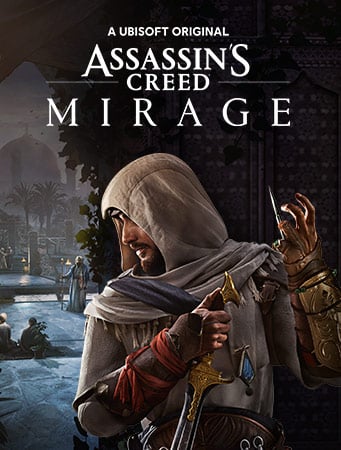Within the first two minutes of playing Assassin’s Creed Mirage, I had already parkoured straight up a pole I meant to parkour around, and accidentally fumbled the stealth tutorial, messing up a simple pickpocketing job. I smiled to myself, “Now this is Assassin’s Creed.”
Mirage sees the Assassin’s Creed series return to the original stealth action format it was born from, which it eventually deviated from in its three most recent games – Origins, Odyssey, and Valhalla – all grand, sprawling, and endless action RPGs.
Read: Four new Assassin’s Creed games announced – Mirage, Jade, Red, and Hexe
Now, gone are the idea of weapons and armour with damage levels, and wide open empty spaces. Mirage goes back to where the series started, the Middle East, with labyrithine city streets, crowds of people, and guards at almost every corner. It heavily encourages you to keep a low profile, take to the roofs, make mistakes, and run the hell away.
It’s a great, entertaining flow, and makes me wonder why the series ever left its home genre in the first place. When you’re in the thick of the game, there’s an emphasis on scouting your infiltration locations, using tools and requesting help from citizens to create openings, and flashy swordplay that looks good enough for you to kinda want to get into more fights, despite it generally being a bad idea.
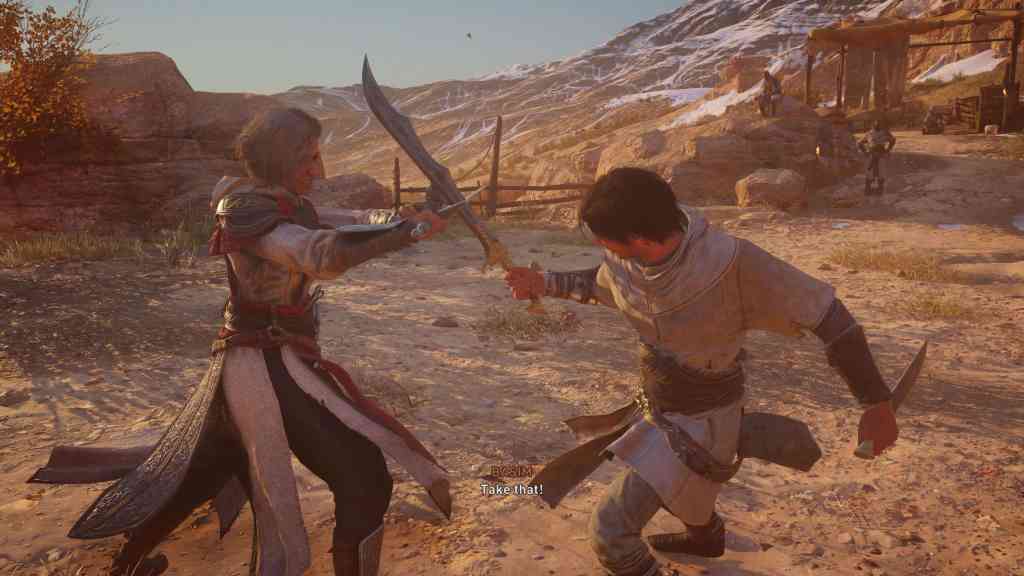
My first few hours playing Mirage certainly hit a lot of the right notes in recalling the fun (and sometimes erratic) flow and atmosphere of those original Assassin’s Creed games. The curated demo opened on protagonist Basim (himself a side character in Assassin’s Creed Valhalla) as a street thief, skipped ahead to his assassin training at Alamut, the headquarters of the Assassin Order, and again once more to a mid-game phase in Baghdad, where Basim is tasked with investigating, finding, and assassinating a number of marks. It was challenging and frustrating at times, but compelling overall, making me eager to see what the overarching ebb and flow of the game and its story feels like.
Basim (and you, by extension) is as much of a detective as he is an Assassin, and Mirage seemingly takes a lot of time to linger on the planning and investigation phases of his various jobs.
In the process of working his way up to major assassination targets, Basim will undertake smaller side missions, some optional, that serve in gathering information to narrow down the identity and location of his marks. They work to build anticipation, and create an air of sleuthing fantasy quite nicely, even if the broad objectives of these missions do feel like a guided, paint-by-numbers series of quests designed to simply simulate an investigation.
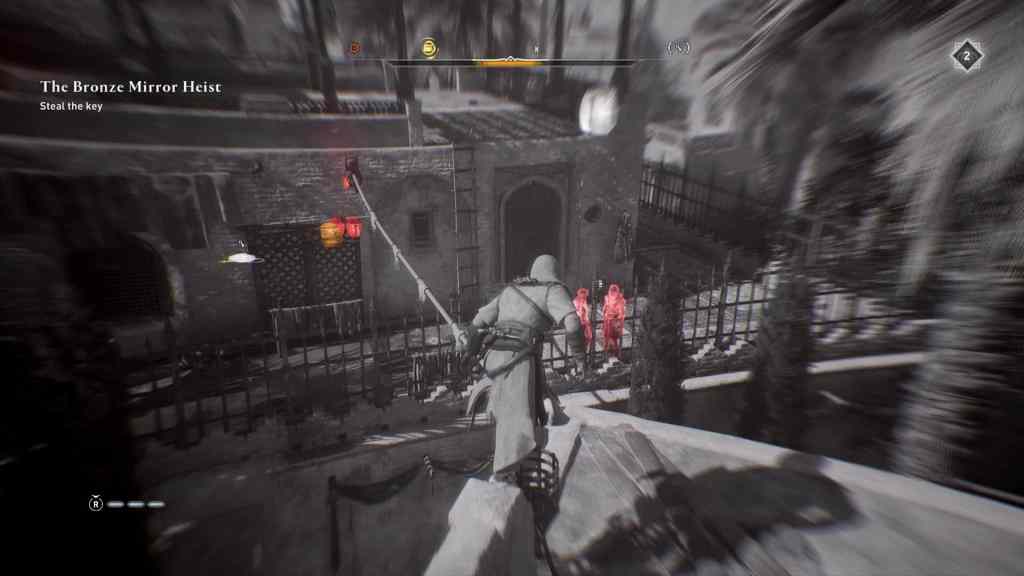
There is a little bit of agency injected in here though. The game has thankfully adopted the clue-based objective design seen in some of the more recent entries in the AC series, where you’re not guided to a specific objective marker, but instead asked to use context clues to find out where you need to be, and what you need to find. It can be a little frustrating as you scour the environment for what you’re supposed to be looking for, but generally, it encourages you to pay more attention to your surroundings rather than the UI, and better appreciate the environment you’re in. The lack of a mini-map in the game also adds to this effect very nicely.
These smaller questlines culminate in significant assassination missions, in city locations that allow for freeform approaches to really test your patience for planning and stealth. The streets of 9th Century Baghdad are dense and clustered, making even the smallest forbidden zones feel like impenetrable fortresses. And where many modern hybrid action games that incorporate stealth typically have an obvious ‘optimal pathway’ to get through unseen, it’s not quite t as clear in Mirage, requiring you to really look around and try to poke holes in the box.
You might find a literal hole in the fence where you can breach the grounds, but then it’s a matter of observing the routes of several guards that all have visibility of that area. The old trick of hiding in the bushes, whistling to catch a guard’s attention, and murdering him still works, but only so many times before you have to decide where and when to move on. Like more recent Assassin’s Creed protagonists, Basim has an eagle that he can use to scout an area from the sky and mark enemies, but not if there’s an archer nearby; they can deter the bird.
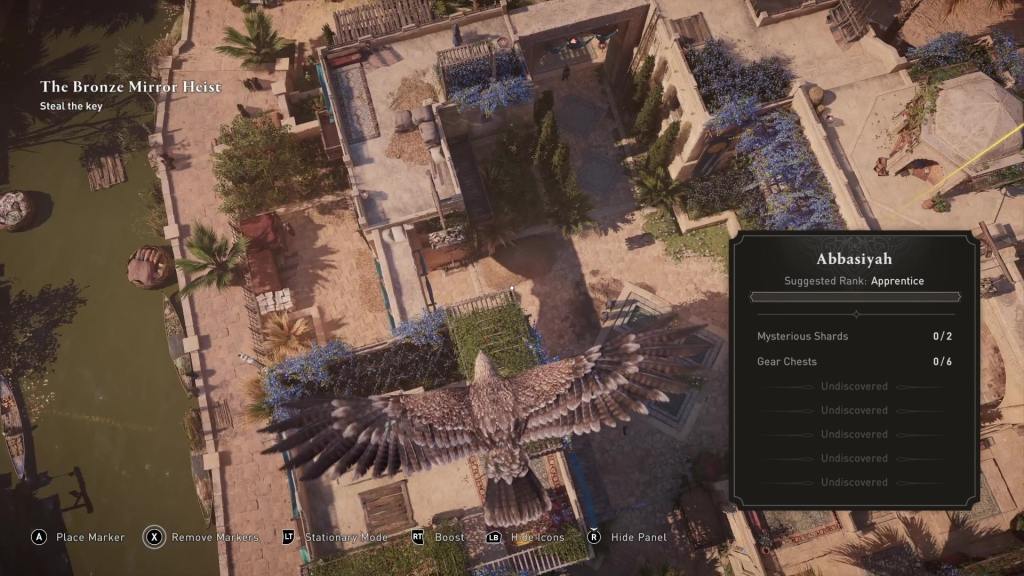
The few places Basim infiltrated in this game preview had a surprisingly large (or perhaps reasonably large, for a real-life situation) amount of guards, and in some cases, I ultimately had to take a step back and take a more meticulous approach to whittle down the defenses of my target area, before I took it on in earnest.
The small act of pickpocketing proved to be increasingly necessary. Regularly keeping an eye out for pickpocketing marks you can pursue will earn you money and merchant-specific tokens, which both seem to be a very useful resource in Mirage. They’re used to do things like buy favours, bribe guards, and generally open up more options and pathways as your investigation continues.
When faced with a brick wall of guards that I didn’t necessarily want to just take head-on (to stay in the spirit of the game), I returned to neutral territory and stocked up on tools like smoke bombs and knives, and paid particular citizens to go and lure guards away from entrances, lowering the overall number of problems I had to deal with.

From there, a mix of tools like throwing knives and the new Assassin Focus ability – a supernatural move that allows Basim to essentially teleport and assassinate multiple targets at once, helped me bring down the number of guards and close the gap with my mark, before I fought my way out, dropping smoke bombs everywhere, and making a break for it.
In a game without character levels or weapons, this is exactly what you want – to be on a level playing field with your enemy, and to feel like you’re overcoming challenges with your own ingenuity.
The end of the demo culminated in a grand, story-significant assassination that takes place within an indoor bazaar packed shoulder-to-shoulder with crowds. This investigation was far more socially-orientated than action-oriented, involving trailing people, eavesdropping, bribing, and an auction that I certainly didn’t have enough money to win, blocking an easy path to success. It ended with Basim charming his way to the heavily protected target, but having to fight his way out once he had done the deed.
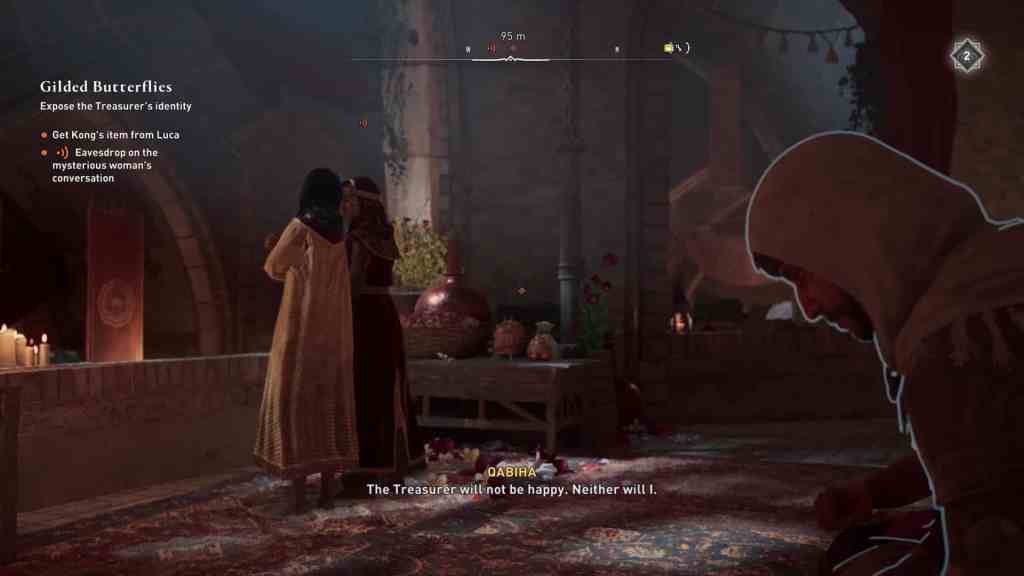
This demo also shared some insight into the story of Basim, which we already know involves his rise from a street thief to a Master Assassin, and the internal demons he struggles with. There wasn’t significantly more context shared here, but regardless, the Assassin’s Creed Mirage demo gave me a very tantalising taste of a return to the series’ sorely missed stealth roots.
The trends of the 2000s are well and truly coming back into fashion, and for the most part, it’s been an enjoyable revival for video games. Here’s hoping that the return of the traditional Assassin’s Creed game design will be another well-earned celebration of the era.
Assassin’s Creed Mirage will be released on 5 October 2023 for PC, PlayStation 4, PlayStation 5, Xbox One, and Xbox Series X/S.
|
$31.99
|
|
|

